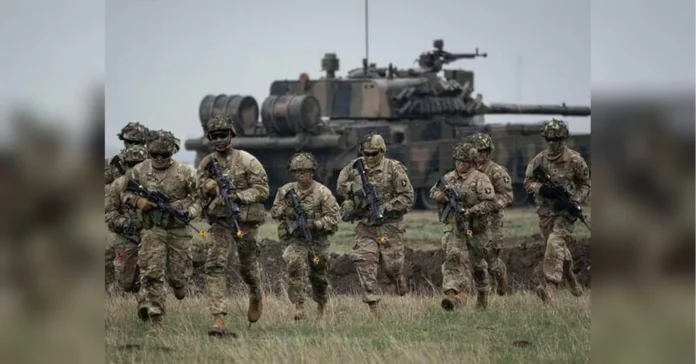The course of events will depend on NATO’s reaction. If the alliance delays in fulfilling its obligations under Article 5, it will lead to the dissolution of the Alliance.
NATO, or the North Atlantic Treaty Organization, was formed in 1949 as a collective defense alliance between North American and European countries. Its main purpose was to provide security and protection against potential threats from the Soviet Union during the Cold War. However, since the collapse of the Soviet Union in 1991, the alliance has faced new challenges and has had to adapt to changing global dynamics.
One of the key principles of NATO is Article 5, which states that an attack on one member country is considered an attack on all members, and that they will respond collectively to defend each other. This principle has been the cornerstone of the alliance’s strength and unity for over 70 years. However, recent events have raised concerns about the effectiveness of this principle and the future of the alliance.
The rise of authoritarian regimes, such as Russia, and the resurgence of aggressive and assertive foreign policies have put NATO’s unity and strength to the test. In 2014, Russia annexed Crimea from Ukraine, leading to a major crisis in the region. Despite calls for NATO to intervene, the alliance was slow to respond, and this raised doubts about its commitment to collective defense.
Furthermore, the election of Donald Trump as the President of the United States in 2016 also caused concerns within the alliance. Trump’s rhetoric and actions, such as questioning the relevance of NATO and criticizing member countries for not meeting their defense spending targets, created divisions and uncertainty within the alliance.
In light of these events, the future of NATO and its ability to fulfill its obligations under Article 5 is being questioned. Many experts believe that if NATO fails to respond effectively to future threats, it could lead to the dissolution of the alliance.
The recent crisis in Afghanistan has once again highlighted the importance of NATO’s collective defense principle. The withdrawal of US and NATO forces from Afghanistan has left the country vulnerable to the Taliban’s resurgence. This has raised concerns about the alliance’s ability to respond to future threats and fulfill its obligations under Article 5.
If NATO fails to respond effectively to the crisis in Afghanistan, it could have serious consequences for the alliance. It could lead to a loss of credibility and trust among member countries, and some may even question the relevance of the alliance in the current global landscape.
Moreover, the delay in fulfilling its obligations under Article 5 could also lead to divisions within the alliance. Some member countries may feel that they are bearing the burden of collective defense while others are not fulfilling their responsibilities. This could create tensions and weaken the alliance’s unity.
Therefore, it is crucial for NATO to act swiftly and effectively in response to the crisis in Afghanistan. The alliance must show its commitment to collective defense and stand in solidarity with its member countries. This will not only send a strong message to potential adversaries but also reassure member countries of the alliance’s strength and unity.
In addition, NATO must also address the issue of defense spending among member countries. Currently, only a handful of countries meet the alliance’s target of spending 2% of their GDP on defense. This not only puts a strain on the alliance’s military capabilities but also creates divisions within the alliance. NATO must work towards ensuring that all member countries meet their defense spending targets to strengthen the alliance’s collective defense capabilities.
In conclusion, the course of events will indeed depend on NATO’s reaction to future threats. If the alliance delays in fulfilling its obligations under Article 5, it could lead to the dissolution of the alliance. Therefore, it is crucial for NATO to act swiftly and effectively in response to crises, such as the one in Afghanistan, to maintain its credibility and unity. The alliance must also address internal issues, such as defense spending, to strengthen its collective defense capabilities. Only by standing together and fulfilling its commitments can NATO ensure its relevance and effectiveness in the ever-changing global landscape.

